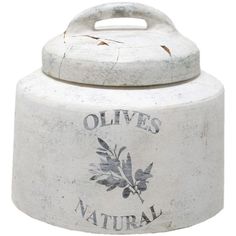The Olive Jar
INSPIRATIONAL, 1 Jun 2015
Dietrich Fischer – TRANSCEND Media Service
A merchant in 8th century Baghdad went on a long trip to the orient. He sold his property, filled an earthen jar with gold coins, and covered it with olives. He asked his best friend to save this jar of olives for him until he would return from his trip, and the friend agreed.
When the merchant did not return after three years, his friend’s wife said, “Let’s see what is inside this jar, your friend may never return.” They removed the top layer of olives and found underneath the gold coins. They used the gold and spent it, living well. After seven years, the merchant returned from his journey, went to his best friend, and asked him to return the olive jar. His friend promised to return the jar by tomorrow.
He went to the market, bought olives, and filled the jar to the top. Then he returned it. When the merchant was looking for his gold and found only olives instead, he felt betrayed, and went to the Caliph, Harun al-Rashid.
The Caliph listened to the story of the merchant, and then to his friend, but did not know whom to believe, or how to prove who was right. The Caliph regularly disguised himself as a common man at night and roamed the city to see if everything was in good order and to listen to what people might think about him and his government.
That night he passed by a group of young boys who played out that dispute about which they had heard. The boy who played the Caliph listened to the two disputants. Then he asked his aide to fetch an olive merchant. “Taste the olives from this jar, and tell me from what harvest they are.” The olive merchant tasted several olives and said, “These olives are from last year’s harvest.” “Could they be seven years old?” the boy playing the Caliph asked. “Impossible! They can only be from last year’s harvest,” the boy playing the olive merchant said. So the boy playing the Caliph ordered the merchant’s friend to fill the jar with gold coins and return them to the merchant. The real Caliph was impressed with the boy’s wisdom, and invited him to become his top adviser at his court.
I have used this story to try to convince teachers that when they ask their students to do role playing of negotiations at the United Nations, they should not insist that they simply try to imitate present governments, in a “realistic” way, but should encourage them to try to be smarter and come up with better, more imaginative solutions than present governments do.
_________________________________
Dietrich Fischer, born in 1941 in Münsingen, Switzerland, got a Licentiate in Mathematics from the University of Bern 1968 and his Ph.D. in Computer Science from New York University 1976. 1986-88 he was a MacArthur Fellow in International Peace and Security at Princeton University. He has taught mathematics, computer science, economics and peace studies at various universities and been a consultant to the United Nations.
Excerpted from Dietrich Fischer’s Stories to Inspire You – TRANSCEND University Press-TUP.
This article originally appeared on Transcend Media Service (TMS) on 1 Jun 2015.
Anticopyright: Editorials and articles originated on TMS may be freely reprinted, disseminated, translated and used as background material, provided an acknowledgement and link to the source, TMS: The Olive Jar, is included. Thank you.
If you enjoyed this article, please donate to TMS to join the growing list of TMS Supporters.

This work is licensed under a CC BY-NC 4.0 License.


